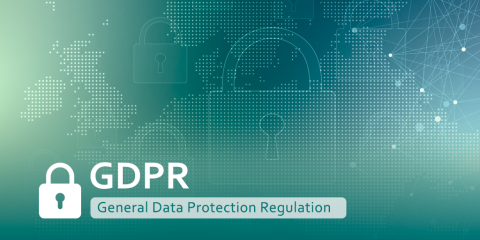How can the General Data Protection Regulation help digitalisation of the industry?
22 July 2020
In this post, Orgalim adviser Silvia Selandari shares insights on privacy and General Data Protection Regulation (GDPR), and how it can help the digitalisation of the industry.

When I was studying abroad in California (USA), I wanted to remain in touch with my family and friends. Hence, I decided to set up a social media account. This helped me share my great experience with my loved ones. At the same time, it made me aware that there was information that I wanted to share with the entire world, while there was also information I wanted to share with closer friends or family only. Since then, I have been actively engaged in privacy-related topics in connection with new technologies.
These days the debate on privacy, focusing in particular on the tracing apps that EU Member States are creating to help fight the COVID-19 pandemic, is on everybody’s mind. On one hand, it is clear that technology, including AI, can help governments solve the current health crisis. On the other hand, privacy is key for the citizens’ acceptance of these innovative technologies.
I am fully convinced of the benefits of digitalisation; thanks to digitalisation, our children can continue learning even when schools are closed due to the COVID-19 pandemic. Moreover, it has helped me to remain in touch with my loved ones when physical contact was not possible due to health concerns.
If I translate this now to my current job, representing Europe’s technology industries, companies that innovate at the crossroads of digital and physical technology, it is clear that digitalisation brings great benefits; this is even more true now that companies need to recover from the COVID-19 crisis. To this end, a balanced interpretation of the General Data Protection Regulation (GDPR) can enable our companies to take full advantage of AI applications while safeguarding privacy rights.
I am also persuaded that one of the main benefits of the GDPR is that it has created legal certainty and increased harmonisation in the European Union. In this respect, it is both in the interest the companies and of the consumers to have a harmonised interpretation of the GDPR at European level. Hence, it is important to increase the coordination between the national authorities, which are in charge of enforcing the GDPR, on this topic.
Personally, I think that the adoption of the GDPR has been a great improvement as it has put privacy on the map. It seems like ages ago since privacy was only a niche topic for nerdy lawyers surfing in California; now, Europe showed great leadership in adopting such forward-thinking legislation.
